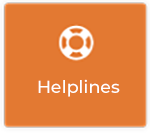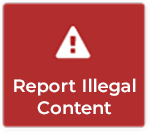Be in Ctrl: Protecting yourself online
#BeInCtrl – A Short Film on Online Grooming from PDST Technology in Education on Vimeo.
Created to compliment the Be in Ctrl teaching resource, this video depicts the stories of two teenagers subjected to online sexual coercion and extortion. The purpose of this video is to inform young people that this behaviour is a crime, raise awareness of how to protect themselves online, where to find help and support and to give them Ctrl!
While chatting to people they have only met online can appear as innocent fun to some young people, it can have serious consequences when the young person does not know for certain who they are talking and sharing personal information with. This video is a great way for parents to start a conversation with their teens about how they are using social media to communicate and form relationships.
We also recommend that teachers use this video as a way of introducing the topic of online sexual coercion and extortion ahead of teaching the Be in Ctrl lessons. It is hoped that this video will be used as a way to inform students of this crime, promote appropriate online behaviour and develop a culture of reporting while fostering empathy, respect, and resilience.
Be in Ctrl, developed in partnership with An Garda Síochána is a Junior Cycle SPHE resource addressing the issue of online sexual coercion and extortion of young people – often referred to as ‘webcam blackmail’. It aims to educate young people of this crime and empower them to seek help and report incidents to the Gardaí. The Be in Ctrl resource contains three lessons, information pack for school leaders, a campaign video and is supported by a Garda Schools Talk.
Protecting Yourself Online
There are simple steps you can take to protect yourself online:
#BeInCtrl:
#Control – No regrets – Keep control of what you share online and with whom. A person you only know online may not be what they claim to be. Anything you send to someone, post online or do over a webcam can be saved/recorded without your knowledge. These images can then be shared anywhere and with anyone.
#Trustworthy – A friend of a friend? Don’t accept friend requests from someone you don’t know. If someone online says they are a friend of a friend, exercise caution – it is easy to post fake photos or stream a fake video, ask your friend if they have met them in person.
#Reality Check – Be aware of your online presence – think about how your online profile makes you appear to others.
#Location – Put your safety first – don’t share your location or meet up with someone you have only met online. Keep your private stuff private – don’t share private information such as your address, phone number or school, and use the maximum privacy settings on your social media accounts.
Getting Help and Support
Look for help. You are not alone. Talk to an adult you trust and look for your friend’s support.
- If someone is threatening to post or share images don’t share more images or pay anything.
- Keep the evidence, don’t delete anything, save messages, take screenshots and record any details you have.
- Stop the communication – block the person and deactivate your social media account. Don’t delete the account as this evidence with help the Gardaí.
- Report the problem to your local Garda Station and/or the Garda Child Sexual Abuse Helpline 1800 555 222. An Garda Síochána will help you and take you seriously. They will deal with it in confidence without judging you.
- Call Childline on 1800 66 66 66, text ‘Talk’ to 50100 or chat online www.childline.ie







